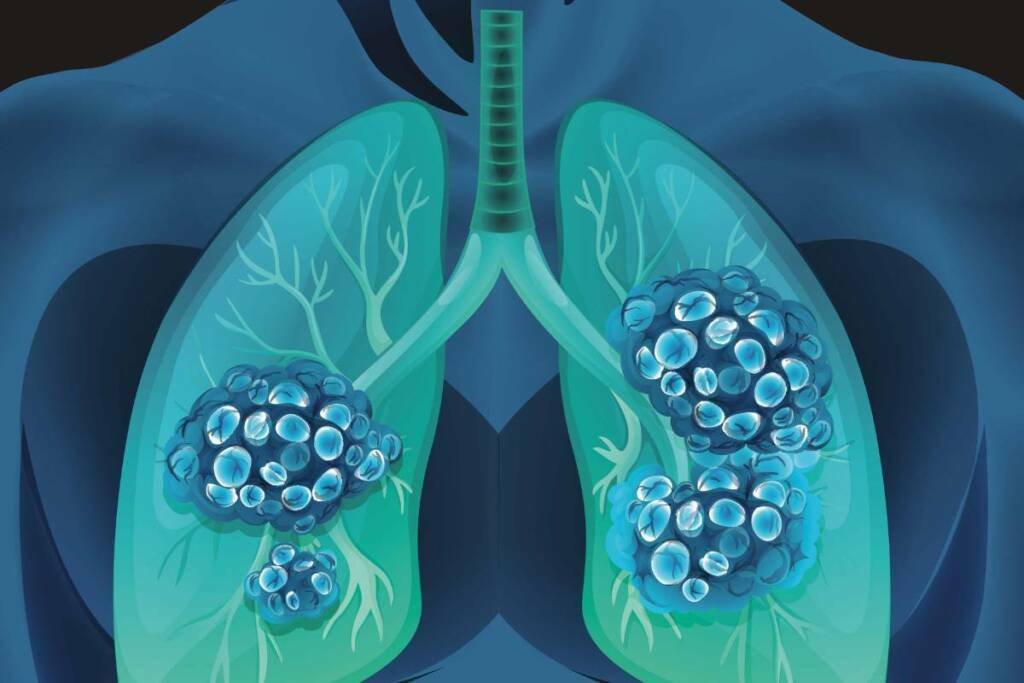Source – Genprex
On June 28, 2023, Genprex has announced that the FDA has granted fast track designation (FTD) to quaratusugene ozeplasmid (REQORSA) in combination with atezolizumab for the treatment of patients with extensive-stage small cell lung cancer who have not experienced tumor progression after receiving atezolizumab and chemotherapy as their initial standard treatment.
“This fast track designation for the Acclaim-III (NCT05703971) patient population is another validation of quaratusugene ozeplasmid’s potential to treat lung cancer. We are very excited to soon begin treating patients in the Acclaim-III clinical trial, which positions quaratusugene ozeplasmid as a component of initial standard therapy for SCLC rather than as treatment for relapse. That will allow us to highlight the contribution of quaratusugene ozeplasmid to an earlier stage of treatment. Based on our experience in other quaratusugene ozeplasmid trials, we have reduced the Phase I portion of the study to two dose levels instead of the three dose levels in our Acclaim-I and Acclaim-II clinical trials. We believe this will shorten the Phase I portion of the trial.In addition, the median PFS of only 2.6 months seen with atezolizumab maintenance treatment will also shorten the time needed to evaluate the combination of quaratusugene ozeplasmid and atezolizumab as maintenance therapy for SCLC.”
– Mark Berger, MD, chief medical officer at Genprex
Quaratusugene ozeplasmid specifically targets the TUSC2 gene and is administered intravenously to tumor cells, disrupting cell signaling pathways and reestablishing apoptosis pathways in cancer cells. It also modulates the immune response against cancer cells and prevents the development of drug resistance.
Previously, the FDA granted two fast track designations to quaratusugene ozeplasmid: one for its combination with osimertinib in patients with advanced non-small cell lung cancer (NSCLC) whose disease progressed after osimertinib treatment, and another for its combination with pembrolizumab in patients with advanced NSCLC whose disease progressed after pembrolizumab treatment.
The ongoing Acclaim-III trial, a dose-escalation Phase I/II study, is currently evaluating the combination of quaratusugene ozeplasmid and atezolizumab in patients with ES-SCLC.
For the Acclaim-III trial, patients are enrolled after receiving initial treatment with carboplatin, etoposide, and atezolizumab for 3-4 cycles and achieving a complete response, partial response, or stable disease. Subsequently, patients undergo maintenance therapy with quaratusugene ozeplasmid and atezolizumab every 21 days until disease progression.
The Phase I dose-escalation portion of the Acclaim-III trial plans to enroll up to 12 patients at 3-5 clinical sites in the United States. The primary objective of this phase is to determine the maximum tolerated dose (MTD) of the combination. If no dose-limiting toxicities occur, the highest dose evaluated will be recommended for the Phase II portion. The Phase II part of the study will include approximately 50 patients at 5-10 sites in the United States who will receive the combination until disease progression or unacceptable toxicity is experienced.
Eligible patients for the study must be 18 years or older with histologically or cytologically confirmed ES-SCLC, an Eastern Cooperative Oncology Group (ECOG) performance status of 0-1, adequate renal and hepatic function, stable cardiac condition with a left ventricular ejection fraction ≥40% within 21 days, and an absolute neutrophil count >1500/mm³ and platelet count >100,000/mm³ within 21 days. Patients must be at least 28 days beyond major surgical procedures and at least 10 days beyond minor surgical procedures, and should not exhibit evidence of wound dehiscence, active wound infection, or major residual complications according to the investigator’s assessment.





























